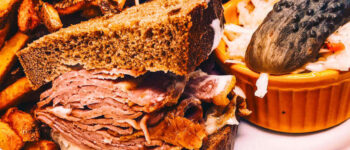A few years ago, I got carded at a bodega. This isn’t unusual—I have round cheeks and penchant for wearing pastel hair clips that would put a third grader to shame—but I wasn’t buying beer. I was just trying to get my fix of bubbly, funky kombucha.
By now, you may have read panicked headlines about the debated alcohol percentage of kombucha. “Can you get drunk off kombucha tea?” “Could kombucha really have caused Michael Floyd’s failed alcohol test?” Yeah, probably not. Sorry, Michael Floyd.
See more : Cannellini Beans vs Great Northern Beans: A Comprehensive Comparison
So, why all the confusion? “Most packaged foods on the market are processed and pasteurized, and are thus pretty straightforward and consistent,” says Health-Ade Kombucha CEO Daina Trout. “But kombucha is alive! And living foods are a lot more complex.”
For starters, it’s true that kombucha’s fermentation process does create some alcohol. As yeast consumes and ferments sugar to produce CO2 and ethanol (along with that distinct probiotic tang), some alcohol remains in the final product. “It’s a constant cycle and thus the alcohol in kombucha is self-limiting, unlike beer or wine, which are intentionally brewed to have higher alcohol content,” says Trout. “Because real kombucha is naturally fermented and not pasteurized to kill the beneficial yeast and bacteria, the trace amount of alcohol in kombucha varies from brew to brew.”
See more : Flavor of the Month: Elderberry
Still, you would have to drink a lot of kombucha to feel a buzz. Most brands on shelves today contain just a fraction of alcohol—less than .5% ABV—allowing them to be sold as non-alcoholic beverages under the guidelines of the Alcohol and Tobacco Tax and Trade Bureau. (For context, a can of Miller High Life clocks in at 4.6% ABV.) Any higher than that, and you too will be carded before purchasing a high-octane version. And if you’re looking to really up that buzz, several “harder” kombucha brands like Kombrewcha and KYLA are ready to take your money—and get you about as tipsy as a sour beer, with about 3% ABV.
So what about the caffeine part? Kombucha is commonly brewed from black or green tea, so it’s true that most kombucha contains some amount of caffeine. But replacing that morning cold brew with a bubbly cup of kombucha won’t provide that same caffeine jolt that gets you to work on time. While the fermentation process does cut down on the tea’s natural caffeine content, about ⅓ of the caffeine remains. It’s not an exact percentage—for reference, GT’s Kombucha contains anywhere from 8 mg to 14 mg of caffeine per 8 oz serving, and Health-Ade has between 6 and 10 mg of caffeine in that same amount. Even if you’re someone like me, who often drinks the whole bottle in one go, you’re still getting less than a quarter of the amount of caffeine in an 8 oz cup of coffee. But if you’re someone like GT Kombucha founder GT Dave, who told us he drinks two gallons of booch a day, you’ll definitely feel the caffeine. And if you’ve quit caffeine cold turkey and now get the jitters just from drinking decaf coffee (which tends to have around 5 mg of caffeine per 8 oz serving), you might feel the kombucha too.
If you’re being strict about alcohol and caffeine but still thirsting for a refreshing, vinegary-in-a-good-way beverage, try a sparkling switchel, herbal oxymel tonic, or even an easily DIY’d vinegar shrub. For the rest of us, know that you won’t likely feel a buzz after downing a bottle of lemon ginger kombucha. And if you do, well, that might just be the probiotics talking.
Looking to get a buzz with your probiotics? Make a kombucha cocktail.
Nigel Gildon editor:Nigel Gildon is the editor of Chef Wayne’s Big Mamou: Chef Wayne’s Big Mamou. He has worked in the publishing industry for many years and has a passion for helping new authors get their work into the hands of readers. 63 Liberty Street * Springfield, MA 01003



